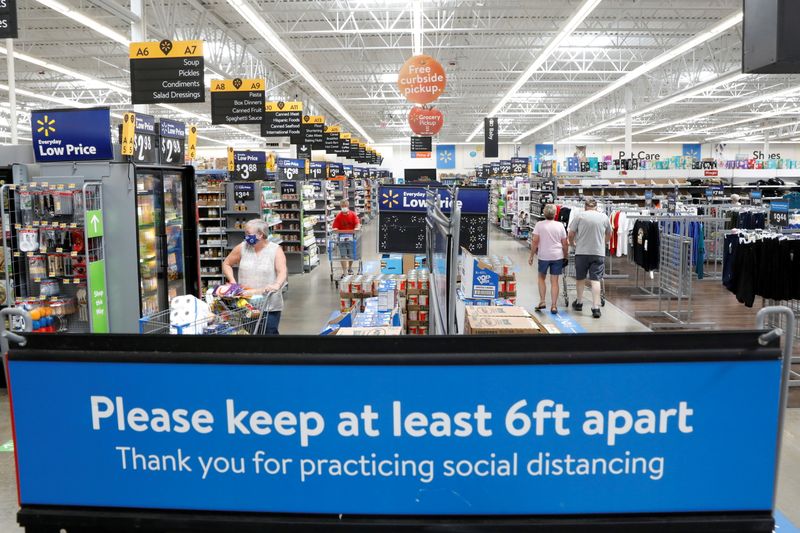[ad_1]
© Reuters
(Reuters) – A U.S. federal court on Tuesday denied requests to temporarily block Albertsons Companies Inc’s $4 billion dividend payment to shareholders before closing of the proposed merger with Kroger (NYSE:) Co, but the payout remained blocked due to another court order.
The federal court in Washington D.C. denied issuing a restraining order in the case, which was filed by the attorneys general of California, Illinois and Washington D.C and sought to block the payout until antitrust reviews of the proposed merger were completed.
However, the payment remained blocked as a state court in the state of Washington last week barred Albertsons from paying the special dividend until Nov. 10, saying that it would weaken its ability to compete as the antitrust reviews go on.
A hearing on that case is scheduled for Nov. 10.
“By eliminating its cash-on-hand and nearly doubling its debt, Albertsons will be in a weakened competitive position relative to Kroger, thereby harming grocery consumers and workers throughout Washington,” State Court Commissioner Henry Judson wrote in issuing that temporary restraining order.
The lawsuit filed by attorneys general of Washington D.C., California and Illinois argued the same.
Kroger snapped up Albertsons in a $25 billion deal in last month’s mega merger between the No. 1 and 2 standalone grocers to better compete against U.S. grocery industry leader Walmart (NYSE:) Inc on prices.
Last week, 26 organizations, including the retailers’ biggest unions and antitrust experts called on the FTC to block the merger, saying it would exacerbate inequality through job losses and eroding wages at a time of high inflation.
“People living in poverty will suffer most of all—not only because of skyrocketing prices as competition vanishes, but through probable store closures,” the groups said, adding the “unusual” $4 billion dividend to shareholders should be investigated.
Albertsons continued to call the lawsuits “meritless,” on Tuesday, and reiterated that it had limited debt and significant free-cash flow and was in a strong position financially.
[ad_2]
Image and article originally from www.investing.com. Read the original article here.

